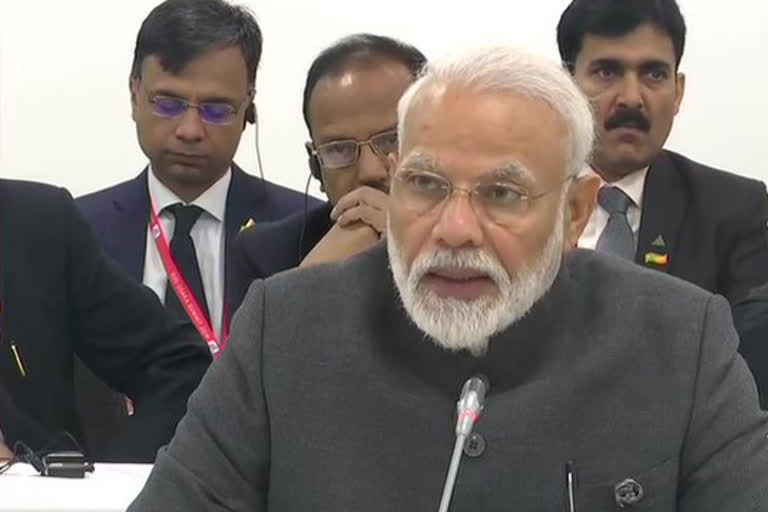New Delhi:Prime Minister Narendra Modi will be holding talks with Chinese President Xi Jinping later tonight along the sidelines of the 11th BRICS (Brazil Russia India-China-South Africa) summit meeting. The meeting comes a little more than a week after India walked out of the proposed mega-regional trading bloc RCEP (Regional Comprehensive Economic Partnership) and a month since the two top leaders met for their second informal summit in Mamallapuram.
The domestic industry in India has strongly opposed RCEP arguing that the country would turn into a dumping ground for Chinese goods coming in through third countries. India has a 50 billion USD trade deficit favouring China and a ministerial group that was agreed upon in Tamil Nadu headed by finance minister Nirmala Sitharaman and Chinese Vice Premier Hu Chunhua is expected to meet soon to discuss trade and investments and deficit reduction ways.
While in Brasilia, PM Modi will have Kashmir on his mind. Though Kashmir was not raised during the second informal summit in Tamil Nadu, the Chinese support at the Security Council to its friend Pakistan to internationalize the issue remains a major thorn in ties. Meanwhile adding to the woes a second US Congressional hearing has been lined up for 14 November on Kashmir post the abrogation of Article 370 and reorganization of the state into Union Territory. The Tom Lantos Human Rights Commission will hold a hearing on 14 November, 2 pm local time to ‘examine the human rights situation in the former state of Jammu and Kashmir in India in historical and national context’. The committee set up by the family of Lantos after his death is led by Democrat Jim McGovern and Republican Chris Smith. In 2014 and 2015 previously, this particulate Commission in critical hearings heard depositions on the plight of religious minorities in India.
“The Indian government’s decision to change the legal status of the Muslim-majority state of Jammu and Kashmir, announced in August and effective as of October 31, 2019, has attracted intense attention due to persistent reports of human rights violations, including a crackdown on freedom of expression; the arbitrary preventive detention of hundreds of politicians, lawyers, journalists, and other civil society figures and related fears of enforced disappearance; and the use of excessive force against protesters. The increased militarization of the security presence in the region and the economic and social consequences of the central government’s actions including continuing restrictions on the internet and phones have also provoked widespread concern. Besides, militants have targeted migrant workers from outsider Kashmir, and have threatened businesses to maintain a protest shutdown,” said a formal announcement. “Witnesses will examine the human rights situation in Jammu and Kashmir in the context of the region’s history and larger patterns of rights violations in India and Pakistan, and will offer recommendations for action by Congress,” the press statement added.
This Congressional hearing comes nearly three weeks after the US House Foreign Affairs Sub Committee scathing hearing on Kashmir where lawmakers sought an ‘active US role’ in defusing the ‘humanitarian crisis’ in Jammu and Kashmir.
